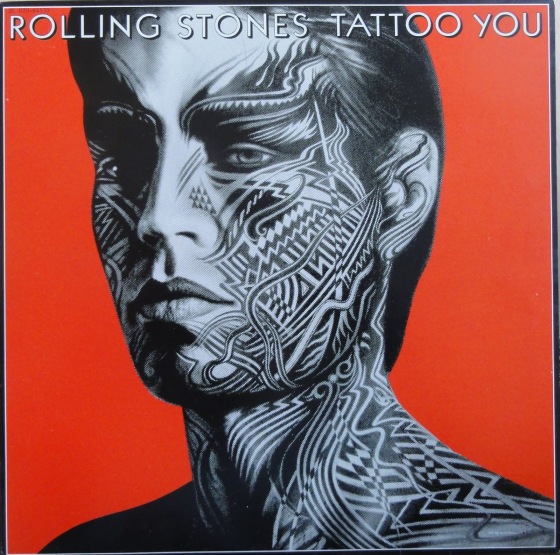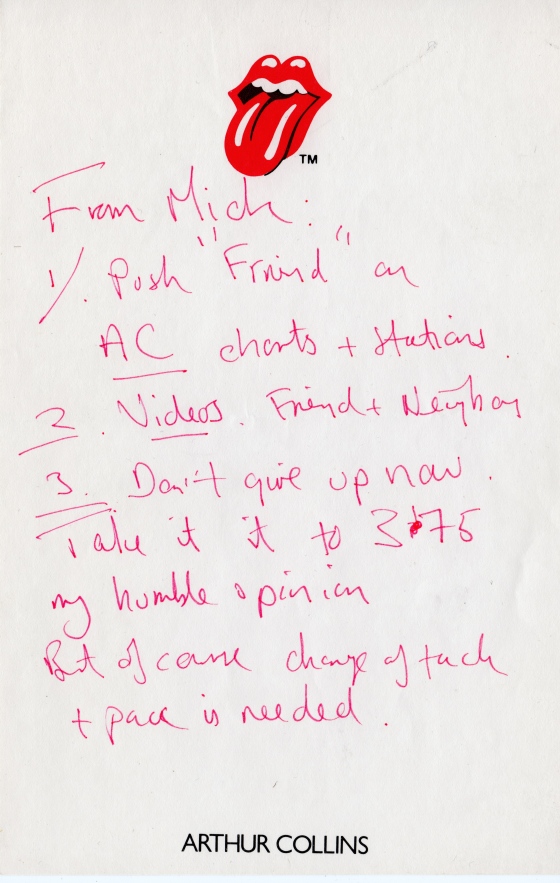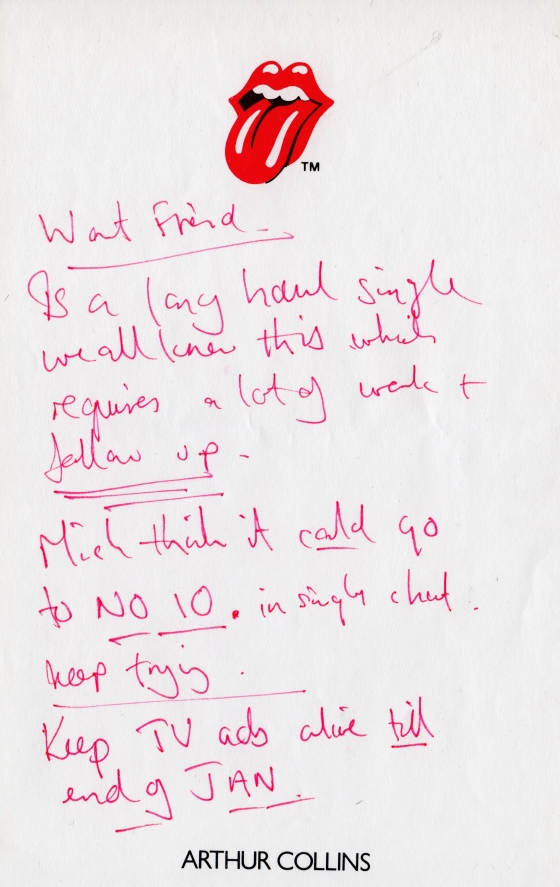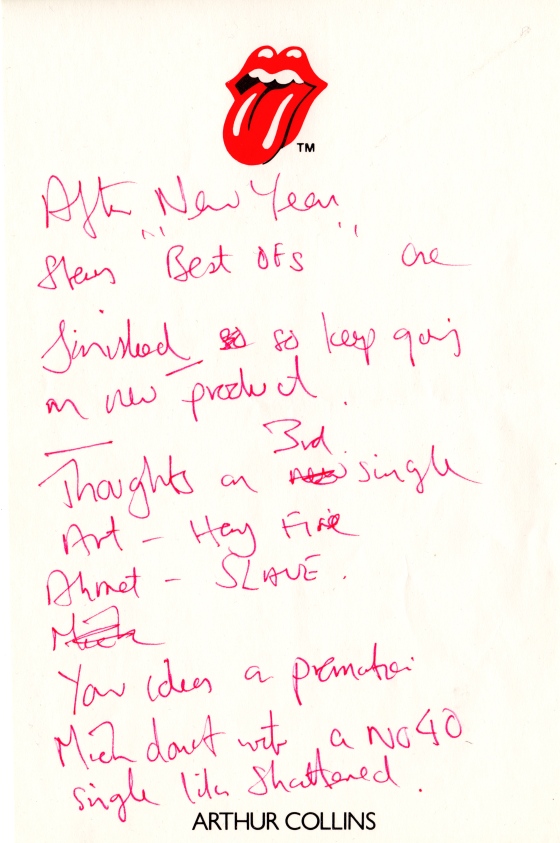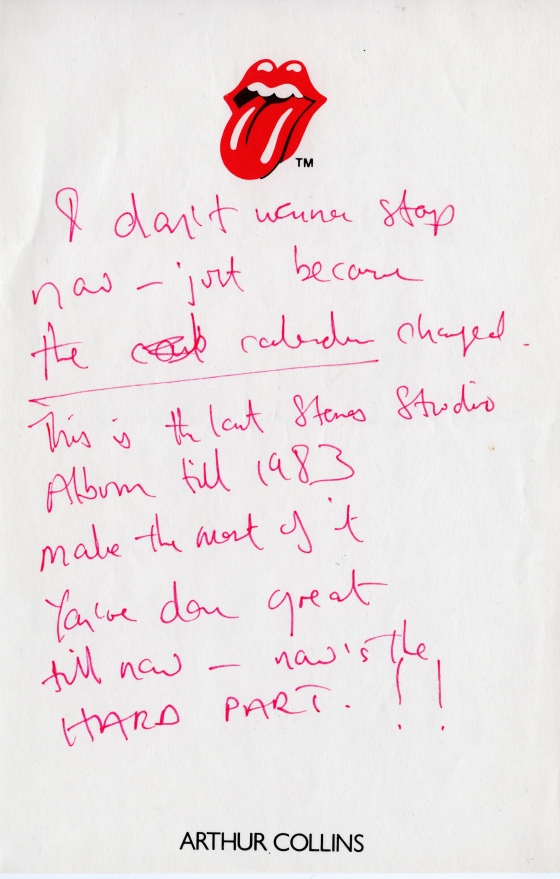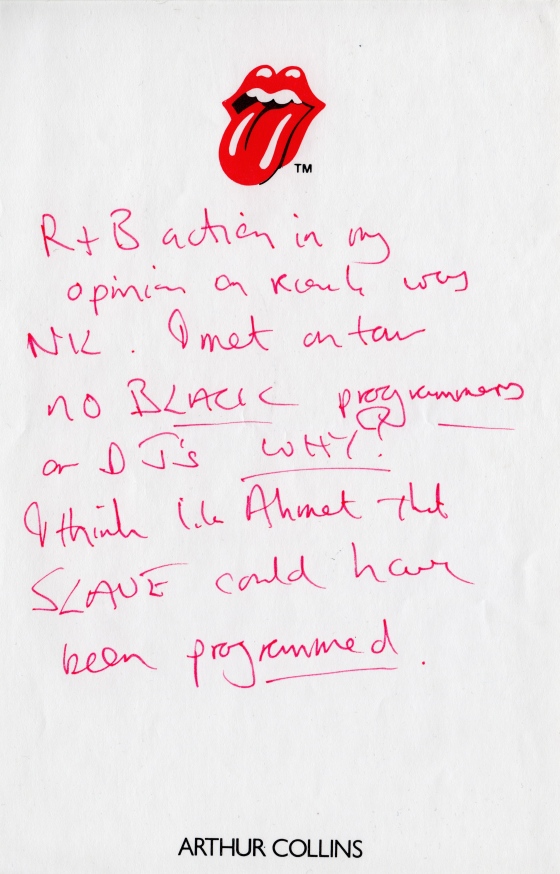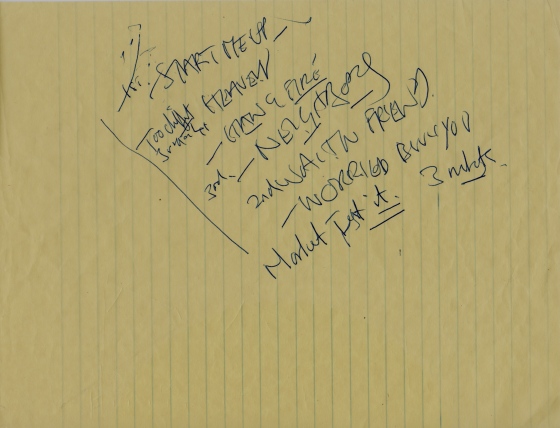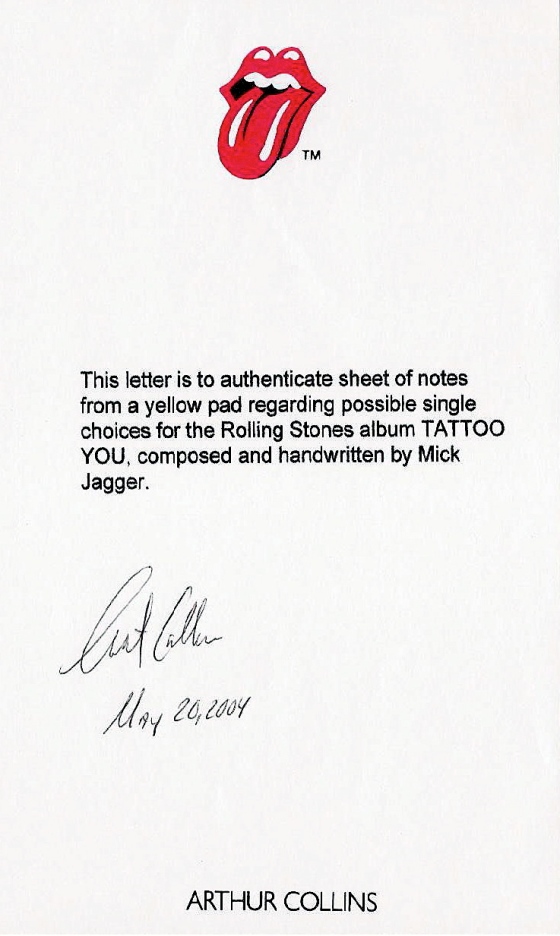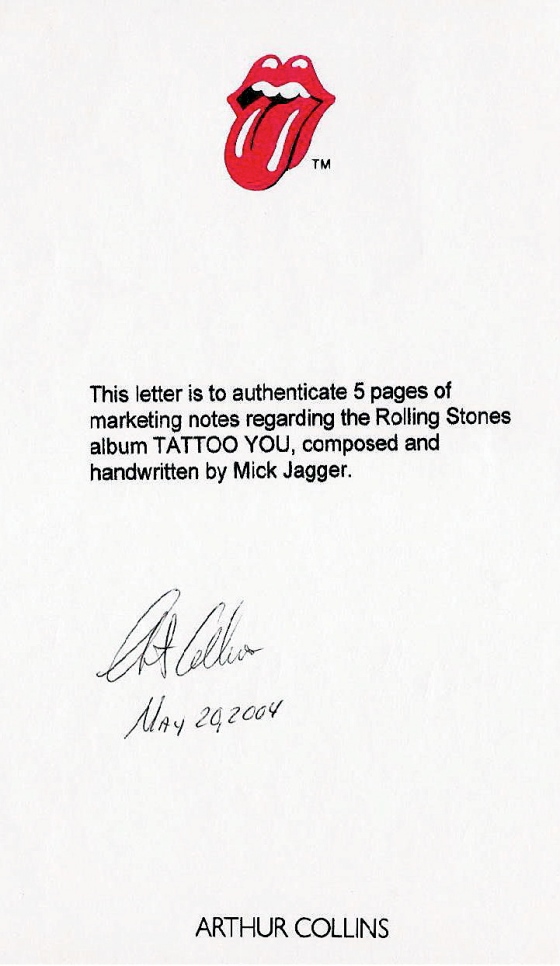Oh Lord, Don't Let Them Drop That Atomic Bomb on Me
Line-up:
Drums: Charlie Watts
Bass: Greg Cohen
Electric guitar: Keith Richards
Lead vocal: Keith Richards
Co-lead vocal: Bernard Fowler
Piano: Chuck Leavell
Saxophone: Bobby Keys
Brass: The Uptown Horns
This is a little piece of time
Lord don't drop that atomic bomb on me
Turn it up a little
Drop it on me
It's for Mingus, they're dropping on me
Ooh, oh-oh-oh
Don't let them drop that bomb on me - no, no, no
Oh Lord, oh Lord - ah ha
Don't let them drop that bomb on me - yeah
Don't let them drop it, don't let them drop it, stop it
Bomb on me
Ooh
Don't let them drop it - on me
Drop it, drop it
Don't let them drop the bomb on me
Oh Lord Jesus - oh Lord - oh Jesus - now, now, ow
Drop that atomic bomb on me - don't let them drop the bomb on me - ooh
Ooh, ooh, oh - drop that atomic bomb on me - oh yeah - no baby - mm-mm
Yeah
Oh yeah, yeah, yeah
Ahh... oh
Mmm...
Mmm, yeah
Oh
Ooh yeah
Ooh, oh Lord, ah Jesus, yeah - oh yeah, that's rightMmm - don't let them drop it, that atomic bomb on me
Ooh yeah
Don't... no - don't (...)
Don't let them, don't let them, don't let them drop the bomb on me, yeah
Yeah, ooh, baby, don't let them drop it on me - don't let them drop it
Ooh... baby you (...) drop that bomb on me, baby
Thursday, August 25, 2016
Wednesday, August 24, 2016
35 years ago today, The Rolling Stones release what’s considered their last great album. Tattoo You...
For too many years it's seemed almost impossible for the Rolling Stones to make an album that hasn't involved — at least partially — the problem of being the Rolling Stones. This difficulty dogged them throughout the Seventies — it's part of the responsibility of having lasted so long, I guess — and they responded to both it and their audience's need for constant redefinition with snideness (who wants to be told that "It's Only Rock 'n Roll"?), subterfuge and, often, a nearly total lack of grace. Sheltered from everyday concerns (the concerns that sing the blues), the Stones hid behind cynical denunciations of meaning, a pose that transformed everything — money, girls and ultimately the music — into so much disposable scenery. Musically, it meant grafting unwarranted au courant attitudes onto the dependable drive of the rhythm section. Lyrically, it signified glorying in distance and turning stances, slogans and promises into false currency.
From today's viewpoint, much of the last decade consisted of camouflage — camouflage for an essential loss of nerve, an unwillingness to be seen unguarded for the length of an LP, or even a tune. But those years are over now, decisively, and with the triumphant release of Tattoo You, they seem shabby and sad. Just when we might finally have lost patience, the new record dances (not prances), rocks (not jives) onto the scene, and the Rolling Stones are back again, with a matter-of-fact acceptance of their continued existence — and eventual mortality — that catches Pete Townshend's philosophical maunderings in its headlights and runs them down. Tattoo You doesn't address the subject of maturity, or deny its onset, in a burst of satyriasis. Instead, maturity serves as the backdrop for rockers with real momentum and love songs with real objects, beginning with "Start Me Up," the catchiest Stones single in ages. "You make a grown man cry," Mick Jagger sings amid a clatter of handclaps and Charlie Watts' precision swing, almost as if he hadn't spent half his life trying to hold back the clock.
That same thread of reasoned recognition runs through the entire album, as though a decade of posturing had somehow been digested into fuel for moving ahead. Tattoo You is a compact, unified statement — despite the fact that some of its tracks (or segments of them) reportedly date back several years. This unity is partly the work of Bob Clearmountain, who mixed the finished tracks and gave them his characteristic vacuum-packed clarity (you could bounce a quarter off each of Watts' rim shots). Mostly, though, it sounds like the Stones simply decided it was time to challenge themselves again. Why else sign up jazz great Sonny Rollins as a session saxophonist? Rollins plays on only three of Tattoo You's cuts, yet his gutbucket sagacity sets the tone for the whole LP. He even turns "Slave," a standard Stones blues jam, into something searing and passionate by establishing a level for the rest of the musicians to match. In "Neighbors," Rollins' solo has the full-bodied sound of classic R&B — always about to go over the edge.
Raucous as a rent party, "Neighbors" is typical of the way the Stones use their past for present-day fodder. "Neighbors, have I got neighbors," moans Jagger, going on to accuse them of "saxophone playing, groaning and straining" and attempting to steal his woman — all of the things you'd expect if you had the Rolling Stones living next door. Such self-mocking allows the Stones to get away with the lyric's do-unto-others truism by putting themselves in the other person's place. It's also part of Tattoo You's surprising humanism, a welcome lack of contempt that's nowhere so evident as in the tunes that deal with women. The Philly-soul falsetto of "Tops" acknowledges that "every man has the same come-on" without faulting the man for trying (a trace of sadness here, maybe) or the woman for believing him. "Black Limousine" is as much a lament for the halcyon days of a relationship as it is a memory of glittering innocence. Even Keith Richards' "Little T & A" (full of wonderful chordal soloing and Richards' usual fuck-me-honey drawl) isn't immune: the place could be anywhere at all, but the girl is one of a kind.
Tattoo You's finale, "Waiting on a Friend," sums up the record's notions of love, loss and acceptance: "Making love and breaking hearts/It is a game for youth/But I'm not waiting on a lady/I'm just waiting on a friend." Filled with attractive ambiguities and intimations of mutual dependency, the song is a celebration of maturity. "I need someone I can cry to/I need someone to protect," sings Jagger, and Rollins' sax picks up a calypso flavor, melodic and transcendent, at the end, as if the loved one had come into view.
Are the Rolling Stones fooling me with all this? I don't think so. Am I fooling myself? I hope not. I do know that the vocal blend in "No Use in Crying" and the way that Mick Jagger drops from falsetto to full voice in "Worried About You" have the instant impact of a lover's touch — a strength that means far more than a mere return to form. I think it means that the Stones have settled magnificently into middle age, and that such an adjustment has given them back a power they long ago relinquished. This is especially clear in "Heaven," a paean to physical love that glorifies tenderness, not sweat and excess. It's an odd, hymnlike number, more reminiscent of Television than of anything by the Stones. In part, "Heaven" is a lover's talisman, a promise of protection: "Nothing will harm you/Nothing will stand in your way." Like all of Tattoo You, it begs the listener's trust. And, for the first time in years, the Rolling Stones deserve it. Deserve it in spades.
Here in honor of the release of Tattoo You are 5 pages of notes written by Mick Jagger on Art Collins note paper for him to bring to a meeting. Mick expresses his thoughts and ideas on how to market this new album. From what songs should be programmed and why, to which songs to push and his suggestions for singles.An incredible peek inside the mind of a marketing genius.
Here's a handwritten note of Mick's Picks for the first single to be released.
Guess what won?
Start Me Up.
Both of these items were on display at the Rock and Roll Hall of Fame for their exhibit 50 years of Satisfaction.
Peace.
Gary Rocks
By: Gary Rocks. A blog about collecting Vintage Rock and Roll Memorabilia.
Monday, August 22, 2016
Sunday, August 21, 2016
Saturday, August 20, 2016
Tuesday, August 16, 2016
Sunday, August 14, 2016
Friday, August 12, 2016
Thursday, August 11, 2016
Monday, August 1, 2016
STONES’ CUBAN DOCUMENTARY TO PREMIERE AT THE TORONTO INTERNATIONAL FILM FESTIVAL...
ROLLINGSTONES. COM
It was announced earlier this week that The Rolling Stones Olé Olé Olé!: A Trip Across Latin America will have its world premiere at this year’s Toronto International Film Festival, which runs from September 8 – 18.
Directed by Paul Dugdale, the film follows the band’s recent América Latina Olé tour, which culminated with a historic free gig in Havana, Cuba. This was the first time the band had played in Cuba so there were a few logistical issues to sort through. In the end, the band played a triumphant show to 1.2 million adoring fans. Watch this space for more news on the film.
